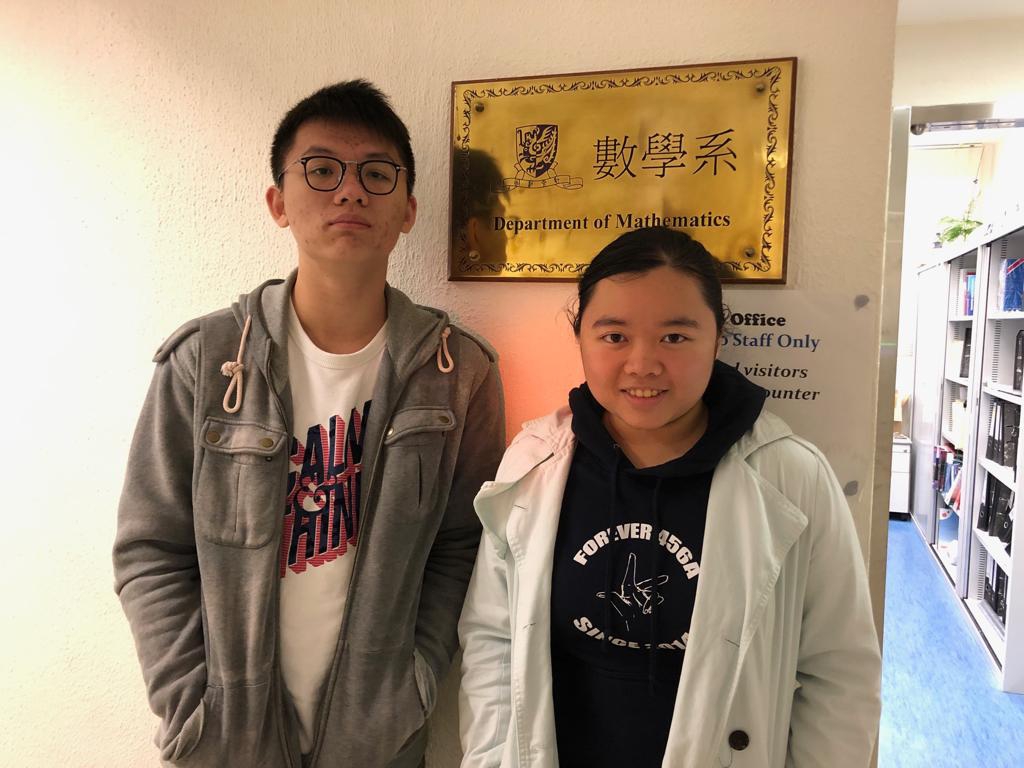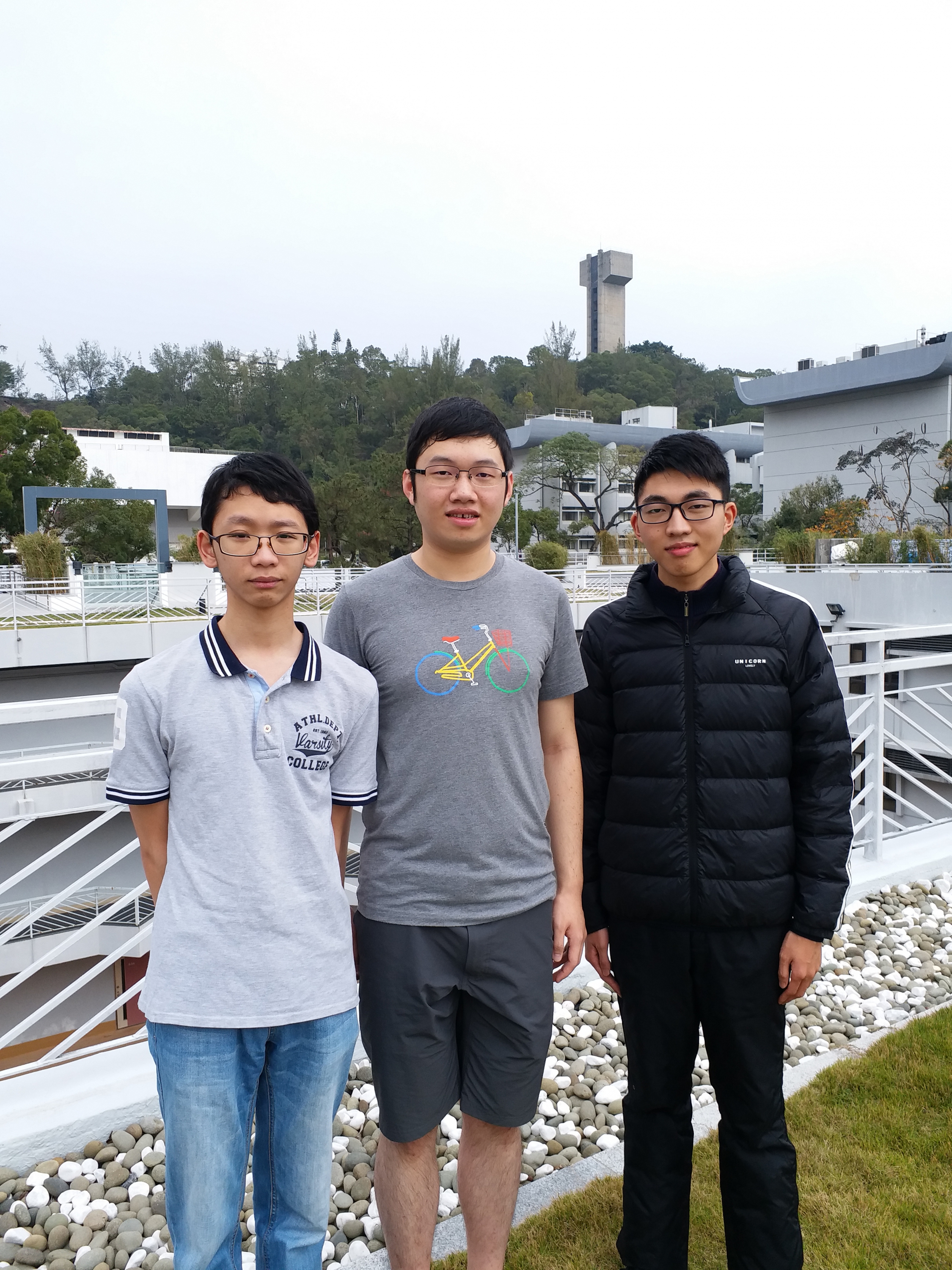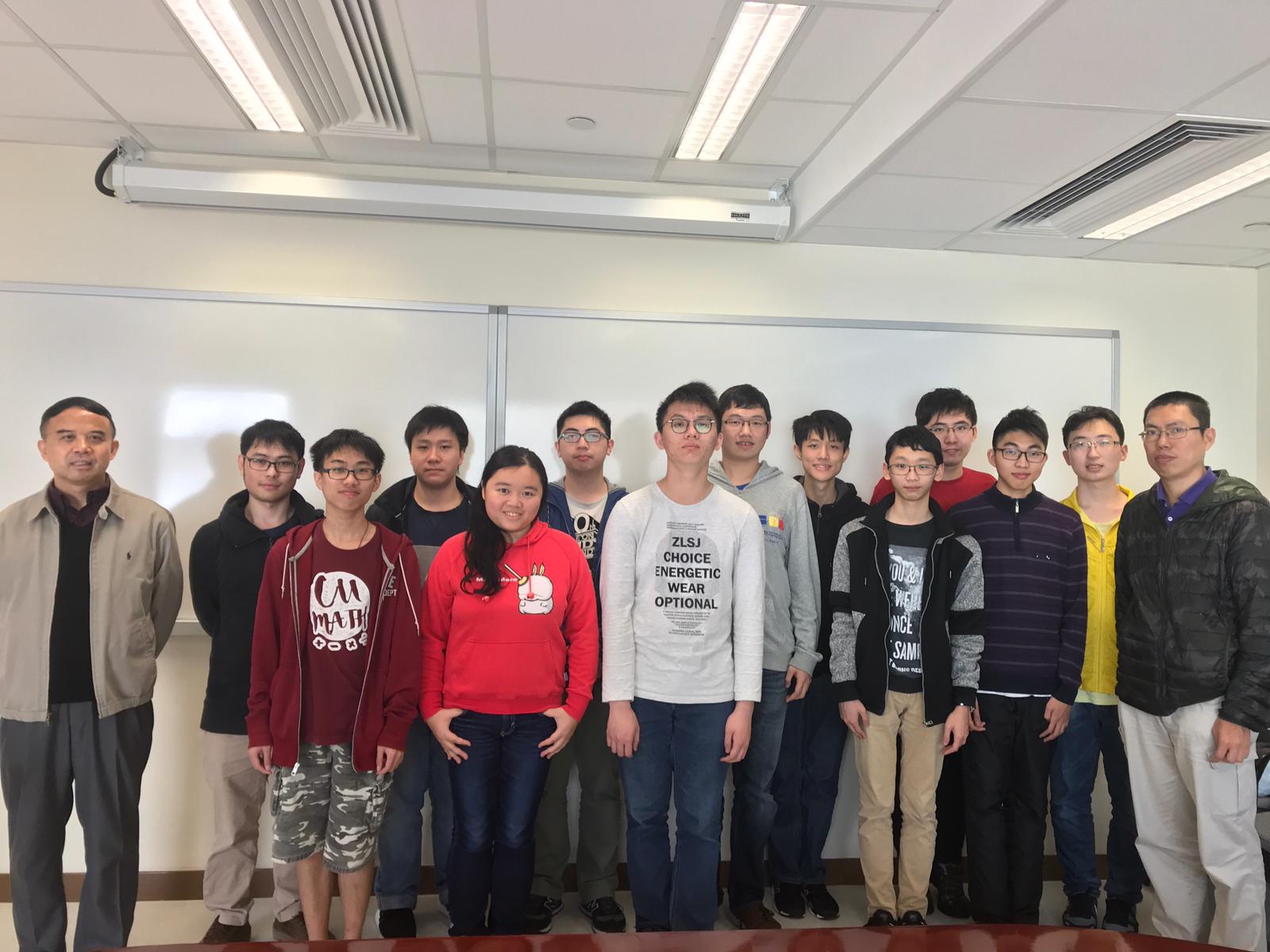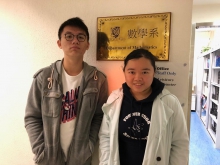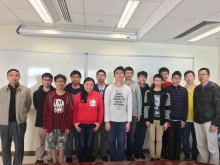CUHK
News Centre
CUHK Students Win Top Prizes in International Mathematics Competition
Students from The Chinese University of Hong Kong (CUHK) have proven themselves to be top mathematics problem solvers in the Simon Marais Mathematics Competition (SMMC). This is an international competition that aims to encourage creative mathematical problem-solving among undergraduate students and award talented university students across the Asia-Pacific region.
This year, the Competition drew participation from nearly 900 students from more than 40 universities, including five universities from Hong Kong. The CUHK team, consisting of 26 undergraduate students (21 of them majoring in mathematics), performed exceptionally well and won a number of top prizes, including:
|
Award |
Winner |
Cash prize |
|
University prize – 1st place |
The Chinese University of Hong Kong |
20,000 |
|
Pairs prize |
Kwok Man-yi, Mandy & Lee Shun-ming, Samuel |
4,250 each |
|
Pairs prize |
Kam Chuen Tung, Chun Shing Wong |
1,250 each |
|
Individual prize |
Jianhao Shen |
2,500 |
One of the first place winners of the Pairs prize Mandy Kwok said, “Influenced by my father, mathematics has been fascinating me since I was young. After joining several competitions, the fruitful knowledge I have gained in training and competing has illuminated the road to mathematics. I enjoy solving maths problems and the beauty of mathematics has always impressed me. It is a myth that maths is dull and straightforward since I can see much creativity and elegance in many maths theorems and their proofs. I would like to thank Samuel for working together with me in the competition.”
Samuel Lee, the other of the winning pair said, “My interest in mathematics began when I started reading books related to mathematical puzzles, in the library. It was the challenge that these puzzles brought me and the extraordinary, creative solutions that drew me into this magnificent world of mathematics. Since then, I have enjoyed joining various mathematics competitions, which helped me sharpen my mathematical mind and broaden my exposure to different fields of mathematics. I also met many friends holding the same enthusiasm towards mathematics, with whom I have spent a lot of enjoyable time.”
Mandy and Samuel won awards as Hong Kong competitors in the International Mathematics Olympiad (IMO) when they were high school students, demonstrating their excellence in mathematics. During SMMC 2018, the contestants took a test involving two 3-hour sessions in which they needed to solve four problems in each session. The last problem in the second session was an open problem, meaning that no solution to the problem is currently known to anyone in the world. It posed a challenge to the participants with the aim of fostering problem solving with innovation and divergent thinking. Apart from this open problem, Mandy and Samuel, and another pair from Singapore who shared the first place in the Pair prize, essentially solved all the other problems and got the highest scores. Now their mathematical proficiency is further recognised through SMMC.
Dr. Lau Chi-hin, a Lecturer of the Department of Mathematics and the coach of the CUHK team said, “It is good to see that there are so many talented and competent students in Hong Kong who have chosen CUHK. As teachers, we aim to provide the best learning environment and to make sure that their abilities are suitably nurtured. This is what the Department of Mathematics at CUHK has always been doing.”
About the Simon Marais Mathematics Competition (SMMC)
There are many local and international mathematics competitions at high school level but few at university level. Inspired by the William Lowell Putnam Mathematical Competition, which is widely considered to be the most prestigious university-level mathematics competition in the world but is only open to undergraduate students in the US and Canada, SMMC was established in Australia in 2017 to offer another intercollegiate intellectual competition for students in the Asia-Pacific region. The students may join the competition as individuals or as pairs. Ten individuals and ten pairs who obtain the highest scores receive awards. Prizes are also given to the three universities which have the highest total scores.
(From left) Chun-shing Wong and Kam-chuen Tung, 3rd place winners of the Paris prize, and Jianhao Shen, 2nd place winner of the Individual prize.


